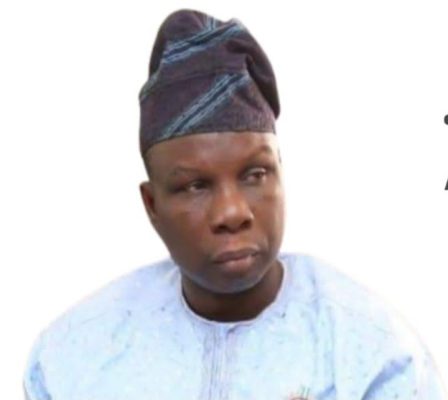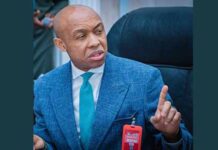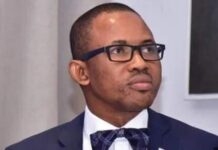The World Health Assembly, with the adoption of resolution WHA 72.6, in 2019, set aside September 17 of every year to be observed as the World Patient Safety Day. On that date, the global body recognizes the urgent need for a broad-based effort at reducing errors in medical diagnosis and treatment by medical doctors and other health workers, most of whom, sadly, lead to the death of patients. This year’s theme was ‘Get It Right, Make It Safe’, which some other health organizations expanded to say ‘The right diagnosis at the right time, as basis for safe and effective health care’.
Each year, diagnostic errors the world over account for an estimated 16% of preventable harm in health care, with tremendous human and economic consequences. In actual fact, data put together by the World Health Organisation (WHO), suggest that most adults will experience at least one diagnostic error in their lifetime, which can result in prolonged ill health, increased health care costs, or even preventable death. Diagnostic error is when a diagnosis is delayed, incorrect, missed, or miscommunicated, and can occur at any stage of a patient’s journey while in the hospital
It is certain that the figure from diagnostic errors in Nigeria would be far worse, as there are several reported cases of wrong medical diagnosis and treatment over the years. The unreported cases may be higher. In the last couple of years, many Nigerians have had cause to come out openly to complain of wrong diagnosis by those who are supposed to save life and not quicken the process of ending it.
Recently, Yusuf Olaniyonu, a former Newspaper Editor and former Commissioner for Information in Ogun State, gave a vivid account of how he almost lost his life while undergoing treatment for an enlarged prostrate. In a piece which has since gone viral and meant to commemorate his 58th birthday, Olaniyonu lamented how he was made to undergo nine surgical procedures made up of six major operations and three minor procedures. His ordeal began on February 19, after being diagnosed with an enlarged prostrate, and based on the advice of his medical doctors, he chose to undergo a minor surgery which he was told would last for only a few minutes and that he would be home within 48 hours.
On the set date, Olaniyonu drove himself to one of the biggest private health care facilities in Abuja where the surgical operation ended up being mismanaged. But for divine intervention and prominent Nigerians who rallied round him, Olaniyonu would have found himself on the other side.
During the first surgery, the surgeons mistakenly ruptured his bladder. In panic, they had to abandon the prostrate operation, hurriedly place a catheter inside his urethra, and return him to the hospital ward. Again, the catheter was not properly placed and urine was not going into the bag. When they noticed this, he was returned to the theatre for another remedial surgery. Again, urine was reverting to his genitals, which had by then become engorged with fluid.
Three trips back to the theatre did not change anything. With death knocking, he was wheeled into the ICU, where he passed out and had to be placed on oxygen. By then, it was obvious that the medical team had reached their wit’s end and had lost control of the situation. One actually told his family that his chance of survival was 50-50. The lucky survivor, in his words, wrote: “They were already thinking of moving to the next patient, after all, they had tried their best.”
But God said his time was not up. His friends rallied round and he was flown to Egypt. That was where intervention came in the form of corrective surgery. Today, Olaniyonu is lucky to be alive. Not so lucky is Akwa Ibom Commissioner of Police, Waheed Ayilara, who came down to Lagos for the same prostrate surgery. He was hale and hearty and even performed his Muslim prayer before he was wheeled into the theatre at the Lagos State University Teaching Hospital, Ikeja. He never came out of the surgery alive as he was pronounced dead few hours later. A distraught Babajide Sanwo-Olu, Governor of Lagos State, ordered a full-scale investigation into the cause of death of the Akwa Ibom CP. The panel that was set up is headed by Professor Adetokunbo Fabanwo, the Chief Medical Director of the same LASUTH. Going by the composition of the members, I do not see the panel doing a proper job as I don’t expect Fabanwo to indict himself and his staff. How he can be judge and jury in his own case beats the imagination. Although the panel was given seven days to submit its report, it’s been over two weeks since the panel was constituted and nothing has been heard about it or its report.
Health facilities should create safe and conducive working environments, promote continuous improvement, and ensure adequate systems, standards and processes are in place. Also, health facilities should ensure that diagnostic tools and technologies are well-maintained, and erring staff prosecuted.
One could go on and on. Of recent and in the same LASUTH, the case of 12-year-old Adebola Akin-Bright, who was indeed, a bright student in school before his life was cut short by a shoddy job between a private medical facility and LASUTH, remains a mystery. Bright had complained of pain in his tummy and was rushed to a private clinic in Alimosho area of Lagos State where he was treated, but when there was no improvement in his condition, he was referred to LASUTH. However, between LASUTH and the clinic, his small intestine simply disappeared. In spite of spirited efforts made by Governor Sanwo-Olu and members of the Lagos State House of Assembly to save the life of the boy, Akin-Bright eventually gave up the ghost. Sanwo-Olu, who later paid a condolence visit to members of the boy’s family, promised to unravel the misery behind the disappearance of the boy’s small intestine. Several weeks after, nothing has been heard of the sordid case again.
The prayers on the lips of most Nigerians now is that no one should fall sick as it is gradually becoming a sure way of death in Nigeria. We have medical workers many of whom are not bothered whether their patients live or die. They have the ‘licence to kill’ as nothing would happen in case of a misdiagnosis or maladministration of treatment. Do we need to remind medical practitioners that this is wrong and against the Hippocratic Oath they took upon becoming Medical Doctors? If it is not a case of wrong or misdiagnosis, it would be a case of fake and substandard drugs sold freely in Nigeria now and consumed by many desperate Nigerians. However, in most cases, these needless deaths are due to outright negligence from licensed medical practitioners. Again, fraudsters in the medical field, in their bid to make money at the expense of the life of their fellow human beings now import fake and sub-standard drugs into the country. Where the drugs are not fake, their prohibitive cost has led to the death of several others. There has also been a surge in fake medical practitioners whose activities are not checked by the Nigerian Medical Association. We have read too many reports to count of quack doctors performing cosmetic surgeries on patients who end up losing their lives and some even go as far as harvesting the organs of their innocent victims. This has become a thriving business in Nigeria now, so much so that the case of a senior Nigerian senator, his wife and a doctor imprisoned in the UK in May 2023 for exploiting a vulnerable victim for illegal organ harvesting readily comes to mind. Across the divide of the medical line, practitioners are compromised and risk the lives of the citizenry.
However, medical practitioners are putting the blame at the door steps of the government. In their view, the three tiers of government have failed to accord the health sector the much-needed attention for them to get things right in the country. They complain that their services are not really appreciated in terms of what they earn compared to their colleagues in other parts of the world. Again, they said that they have to work with obsolete and outdated equipment and that many of them are overworked, which gives room for errors.
Indeed, most medical doctors in Lagos State and in other cities in the country are overworked. The number of patients in most of the General Hospitals in Lagos State are far higher than the number of medical doctors on ground to provide health care to the sick and vulnerable. You only have to visit any medical facility in the state for first-hand information on the sordid state. Now, they have chosen to peg the number of patients that each medical doctor at work can attend to on a daily basis. If for instance, a medical doctor will attend to only 20 patients in a day and there are five doctors on duty, the first 100 patients are those that would be attended to on that day, except it’s an emergency case. Others will be advised to return the following day. This practice was witnessed first-hand in Ifako-Ijaiye General Hospital last week. Patients were issued with tally numbers.
Overcrowding and shortage of staff have been with us in the health sector since Nigeria became an independent nation but over 60 years after, we are still unable to find a permanent solution to the problem. Rather, it has been compounded by the now popular ‘japa’ syndrome, where many of the bright and best hands are lured overseas with good salaries and better working conditions. Asides that, many state governments are not living up to their duties of providing health care to the people, particularly in Northern Nigeria. A few years ago, I was in Jada Local Government area of Adamawa State and was shocked when I was told that the Jada General Hospital has only one medical doctor on its pay roll. One medical doctor to attend to how many patients? And for those who may not know, that is where former Vice President Atiku Abubakar hails from.
In the South, where there are more doctors, their number is still grossly inadequate to cope with the huge population of Nigerians seeking medical attention, and yet, medical practitioners still have to battle with harsh operating environments.
The ugly trend of increasing number of quack or half-baked medical practitioners many of whom have become licenced killers in the country is not only worrisome, it is embarrassing for a country that prides itself as the giant of Africa. It is only in Nigeria that we have those termed ‘auxiliary Nurses’, many of whom are not registered nurses or midwives, but are in our hospitals, giving injections and attending to patients. Several fake medical doctors have been caught after practising as qualified doctors for several years with many lives lost in their care, especially in our rural areas.
To put a stop to these ugly trends, relatives of patients killed in the process of seeking medical intervention due to negligence, wrong diagnosis, and the nonchalant attitude of health workers should begin to ask questions about what went wrong rather than taking the bodies of their loved ones for burial immediately. If the health workers know that there will be consequences for their actions and inactions, they would place greater attention to their work and this would lead to a reduction in the number of deaths recorded due to medical negligence.
As we celebrate this year’s world Patient Safety Day, targeted interventions by policy-makers, health care leaders, health workers, medical product regulators and manufacturers with the active engagement of patients, their families and civil society can help reduce the risk of error.
Aside that, policy-makers should ensure appropriate national guidelines, protocols and regulations exist and are implemented, and necessary budget and resources are allocated. Health facilities should create safe and conducive working environments, promote continuous improvement, and ensure adequate systems, standards and processes are in place. Also, health facilities should ensure that diagnostic tools and technologies are well-maintained, and erring staff prosecuted.
At the individual level, patients and their families should proactively participate in the diagnostic process by sharing their symptoms and full medical history, asking questions, raising concerns and following up on test results. There is also nothing wrong in seeking a second opinion from other medical doctors in other facilities to be sure that things are on the right track.
See you next week.










